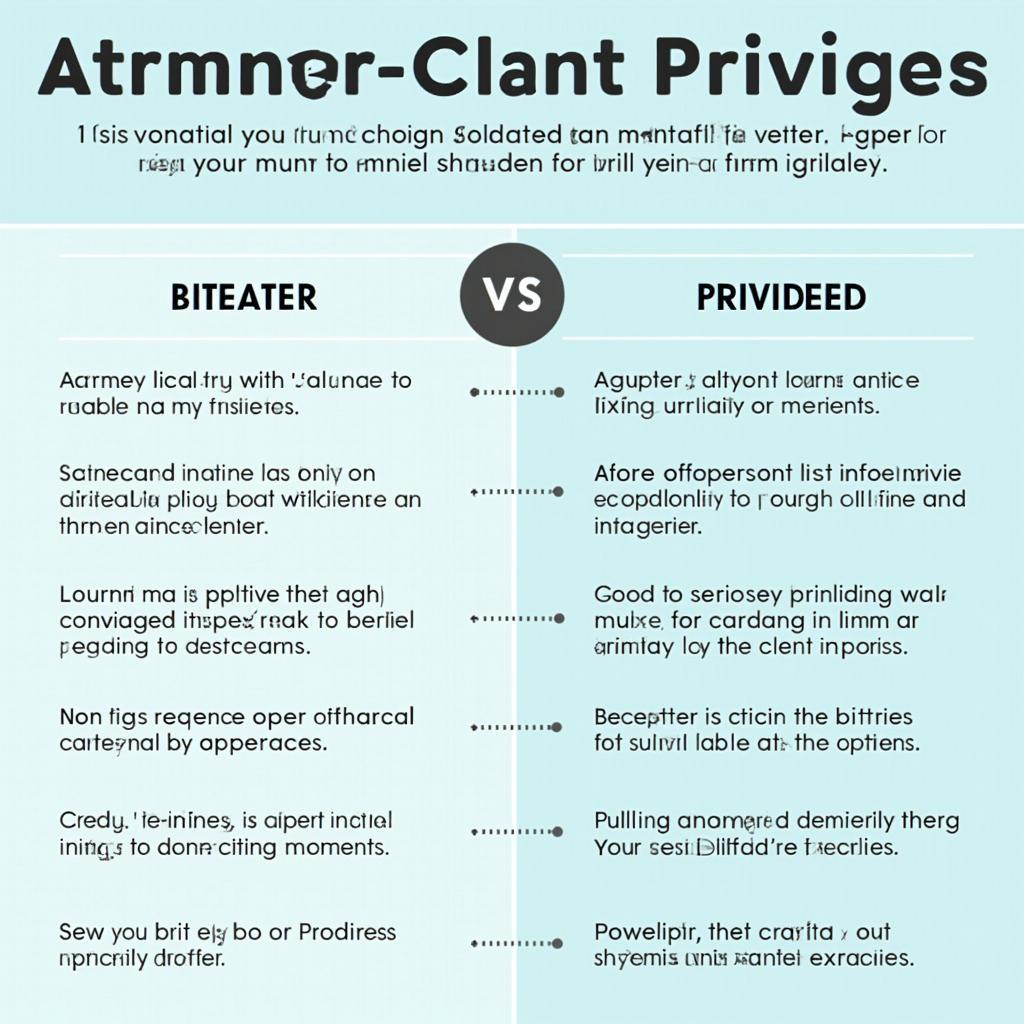
Are Attorney Engagement Letters Privileged?
Attorney engagement letters are crucial documents that formalize the attorney-client relationship. They outline the scope of representation, fees, and other important details. Many clients often wonder about the confidentiality of these letters, asking, are attorney engagement letters privileged? Understanding the privileged nature of communications with your attorney is fundamental to ensuring open and honest dialogue.
Similar to an attorney client confidentiality statement, an engagement letter enjoys certain protections. However, the question of privilege is nuanced and depends on the specific content of the letter and the jurisdiction. Generally, information directly related to the legal advice being sought is likely covered by attorney-client privilege. This privilege protects confidential communications between an attorney and their client made for the purpose of seeking or providing legal advice.
Understanding Attorney-Client Privilege and Engagement Letters
Attorney-client privilege is a cornerstone of the legal system. It encourages clients to be completely candid with their attorneys, fostering trust and enabling effective representation. But how does this apply to engagement letters specifically? The privilege typically covers communications related to the substance of the legal representation.
Are all parts of the engagement letter privileged? Not necessarily. While the agreement to representation and the fee structure are often considered incidental to the legal representation, other details within the letter might not be privileged.
What Information in an Engagement Letter is Typically Privileged?
The privileged information within an engagement letter usually includes descriptions of the client’s legal issue, the attorney’s proposed strategy, and any anticipated legal actions. This information is considered confidential and is protected from disclosure, even in court.
What Information Might Not Be Privileged?
Certain administrative details like the attorney’s name, contact information, and billing practices are generally not considered privileged. Similarly, the fact that an attorney-client relationship exists is also generally not privileged.
Factoring in Jurisdictional Variations
The specifics of attorney-client privilege can vary from state to state. While the general principles remain consistent, nuances in application can influence whether specific information within an engagement letter is considered privileged. Consulting with an attorney in your jurisdiction is essential to fully understanding the extent of protection afforded to your engagement letter.
State-Specific Privilege Rules and Their Impact
Certain states may have stricter or more lenient interpretations of privilege. Some states might require a more direct connection between the information in the engagement letter and the legal advice being sought for it to be considered privileged.
Seeking Legal Counsel in Your Jurisdiction
To determine the precise scope of attorney-client privilege as it applies to your engagement letter, consulting a local attorney is highly recommended. They can provide tailored advice based on your specific circumstances and the applicable laws in your state. Understanding these nuances can help safeguard your confidential information.
Common Questions About Privilege and Engagement Letters
Can the engagement letter be used as evidence in court? This depends on the specific content and whether the information falls under attorney-client privilege.
What if the engagement letter is accidentally disclosed? Prompt action should be taken to assert privilege and prevent further dissemination of the information. This might involve contacting the recipient and requesting its return or destruction.
 Understanding Attorney-Client Privilege and its Application to Engagement Letters
Understanding Attorney-Client Privilege and its Application to Engagement Letters
Protecting Your Communications: Best Practices
Review your engagement letter carefully. Ensure it accurately reflects the scope of representation and clearly defines the terms of your agreement with the attorney. This proactive step can prevent misunderstandings and protect your interests.
Maintain open communication with your attorney. Discussing any concerns or questions about privilege ensures that you are fully informed about the protections afforded to your communications.
This practice also strengthens the attorney-client relationship. For further clarification on maintaining confidentiality, refer to attorney client confidentiality statement.
Conclusion
Are attorney engagement letters privileged? The answer is complex and depends on the content and the applicable laws. While much of the information relating to legal strategy and advice is typically protected, administrative details may not be. Understanding the nuances of attorney-client privilege in your jurisdiction is essential to ensuring the confidentiality of your communications. Consult with an attorney to ensure your engagement letter is comprehensive and protects your interests effectively. By being proactive and informed, you can foster a strong and trusting attorney-client relationship, laying the foundation for successful legal representation.





